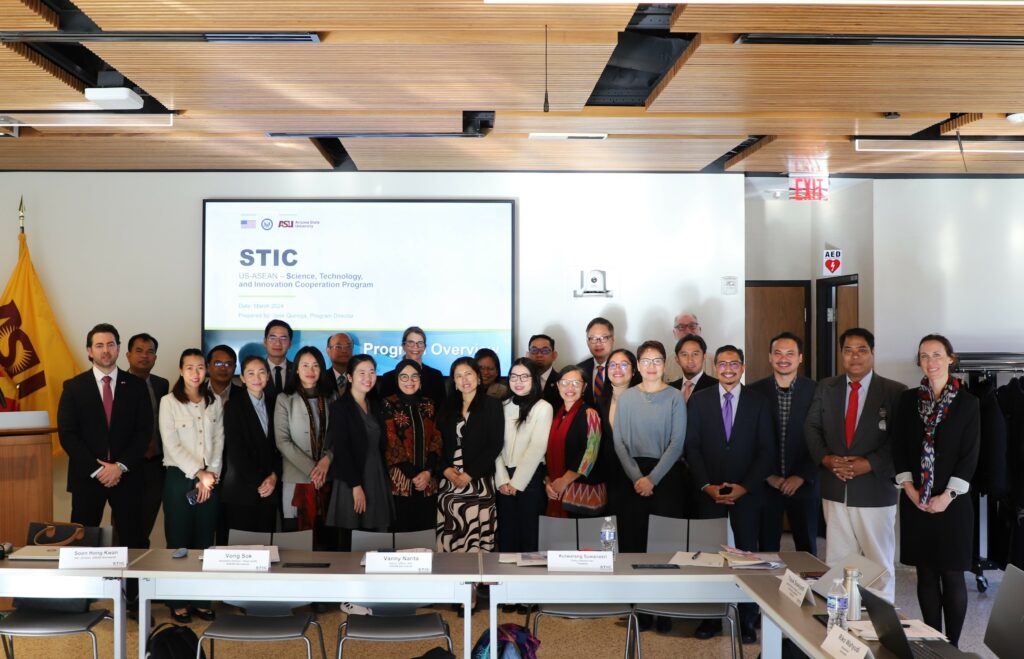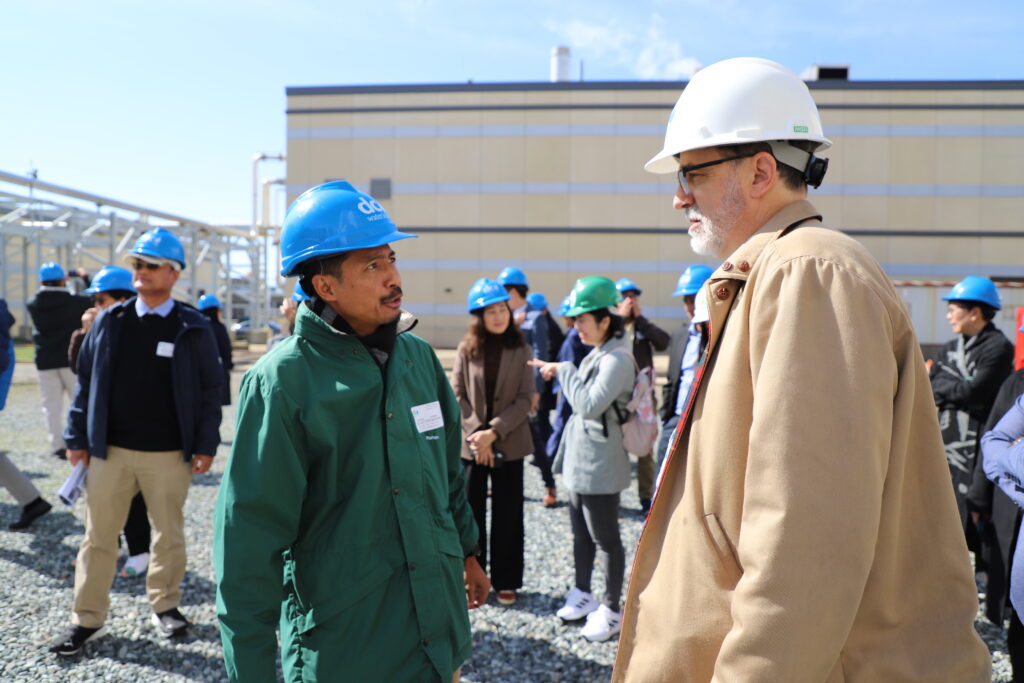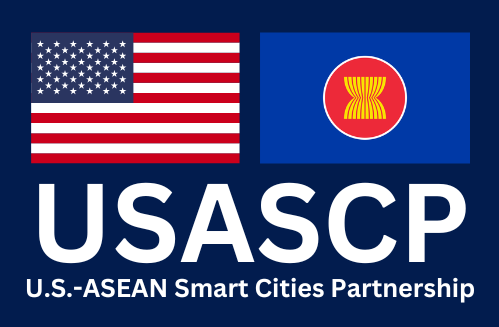Arizona State University
Arizona State University is the implementing partner for the STIC program, sponsored by the U.S. Department of State’s Bureau of East Asian and Pacific Affairs, Office of Multilateral Affairs (EAP/MLA). The overarching objectives of this program are: 1) to strengthen and increase national and regional cooperation of ASEAN Member States and the U.S. government on federal, local, private sector, and academic levels and 2) to develop and implement policies to foster science, technology, and innovation through increased funding mechanisms, data sharing, intellectual property generation, commercialization, and academic research partnerships.


To achieve these outcomes, the STIC Program will feature three annual core activities: Cybersecurity (2023), Biotechnology (2024), and Material Science (2025). Each year, 20 senior-level ASEAN officials will embark on a two-week science study tour in Washington, D.C., where they will engage in technical workshops delivered by academic, government, and industry experts. Next, the U.S.-ASEAN STIC Virtual Talent Mobility Portal offers scholarships for online study in three separate tracks: Science and Technology, Entrepreneurship and Innovation, and STI Policy. By 2025, STIC aims to engage 25,000 participants in this component. Finally, the program commences with three-day regional conferences featuring networking opportunities and roundtable discussions for 400 selected applicants. Every year, $100,000 in grants are awarded across four different research projects and four business ventures through a competitive process.
Anticipated results include an increase in the number of ASEAN students studying and research in the United States, as well as enhanced science and technology cooperation. STIC hopes that participants will succeed in commercializing their products or services, and receive additional funding from other sources after the completion of the program.
 U.S.-ASEAN Smart Cities Partnership
U.S.-ASEAN Smart Cities Partnership

